Parthenon Sculptures Return Gains Momentum in the UK
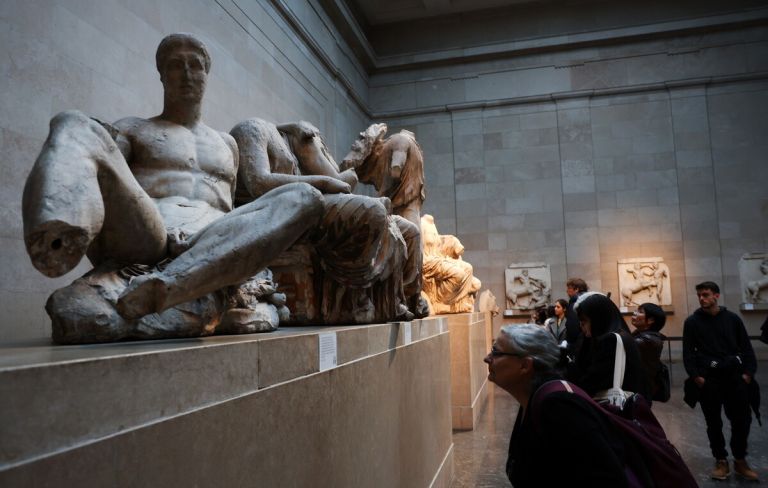
Πηγή Φωτογραφίας: Διαδίκτυο//In the leadup to the UK general election, there has been increasing talk of a 'deal’ being done between Greece and the British Museum over the Parthenon Sculptures in the likely event that the Rishi Sunak-led Conservative Government is ousted.
In the leadup to the UK general election, there has been increasing talk of a ‘deal’ being done between Greece and the British Museum over the Parthenon Sculptures in the likely event that the Rishi Sunak-led Conservative Government is ousted.
Whilst a Labour Government led by Sir Keir Starmer may be more sympathetic to the cause for reunification of the so-called Elgin Marbles, it is still early days.
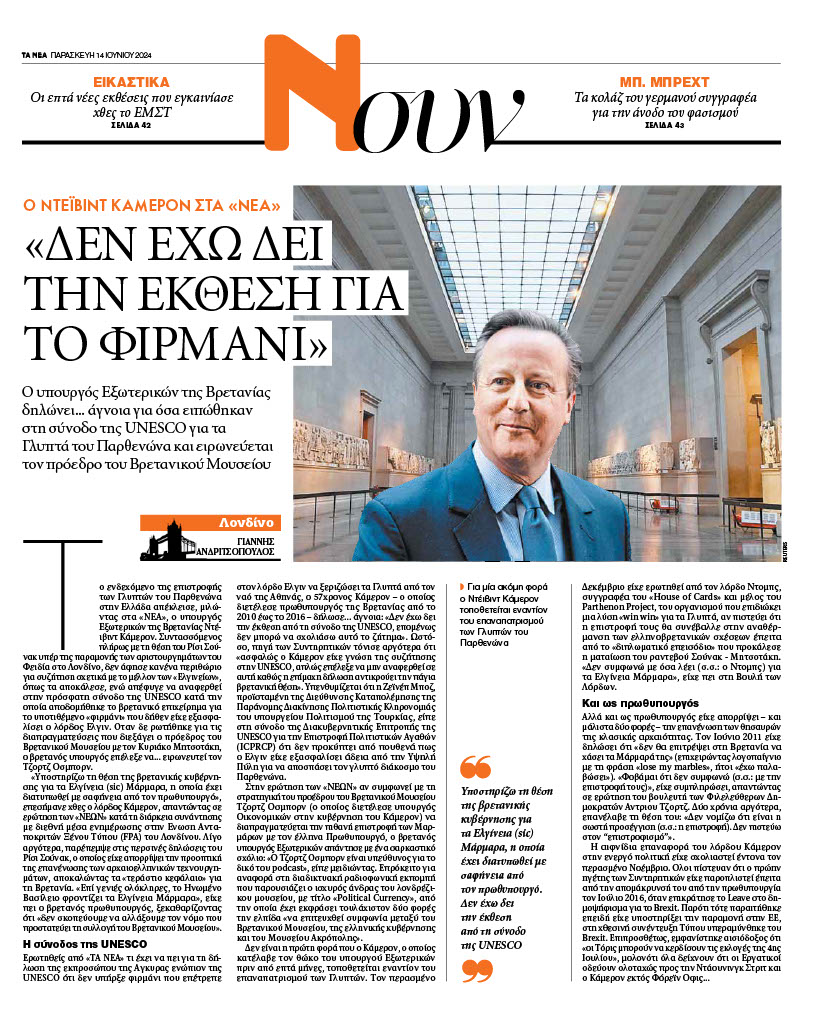 As the correspondent for Ta Nea in London, Yannis Andritsopoulos, has reported the UK Foreign Secretary, Sir David Cameron, recently told a meeting of the Foreign Press Association that he continues to support the government’s position, even disclaiming knowledge of comments made at the recent UNESCO intergovernmental committee session in Paris by a senior Turkish cultural ministry official that Türkiye has no record of any formal permission or firman ever being issued by the Ottoman Sultan to Lord Elgin to dismantle the Acropolis monuments which Tory retentionists have always claimed forms the legal basis for Elgin’s actions.
As the correspondent for Ta Nea in London, Yannis Andritsopoulos, has reported the UK Foreign Secretary, Sir David Cameron, recently told a meeting of the Foreign Press Association that he continues to support the government’s position, even disclaiming knowledge of comments made at the recent UNESCO intergovernmental committee session in Paris by a senior Turkish cultural ministry official that Türkiye has no record of any formal permission or firman ever being issued by the Ottoman Sultan to Lord Elgin to dismantle the Acropolis monuments which Tory retentionists have always claimed forms the legal basis for Elgin’s actions.

When asked to comment on remarks made on a podcast by the current Chair of Trustees of the British Museum, George Osborne, as to the possibility of a deal with the Greeks, Cameron retorted that Osborne is “responsible for his own podcast”.
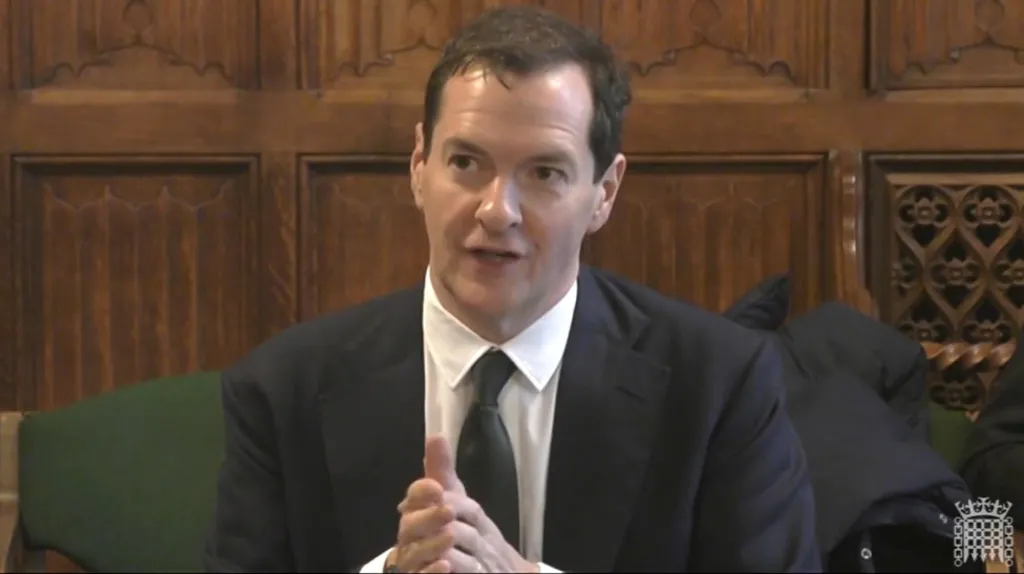 What did George Osborne actually say?
What did George Osborne actually say?
On 29 December 2023 in his podcast “Political Currency” with Ed Balls, a former shadow chancellor of the Exchequer, George Osborne received a question from the well-known writer and activist, Stephen Fry, regarding the Elgin Marbles about the apparent legal inhibition in returning the sculptures.

The British Museum Chair responded:
“There is room for agreement and I hope we can do a deal between the British Museum and the Greek government and the Acropolis Museum which many people will have been to in Athens. That’s a deal that allows us to share the viewing of the marbles … not in a way that challenges anyone’s fundamental claims: Greece will always say that they are rightfully Greece’s and the law is very clear that they are the possession of the British Museum.”
George Osborne continued:
“I think we can reach an agreement whereby a portion of the marbles are at any one time on display in Athens … At the same time some wonderful Greek treasures that have never left Greece can come and go on display in the British Museum like the Mask of Agamemnon, for example, and we both share these wonderful objects and millions of people in both cities can come and see them. So it’s not an easy deal to pull off. This is a row that has been going on for 200 years … and if there was a simple solution it would have been had but I am reasonably optimistic.”
His fellow podcaster asked George Osborne about changing the British Museum Act to allow the museum to return objects in its collection. Rather ominously, Osborne replied:
“So the law as presently written in the 1960s says that the British Museum cannot return any objects. By the way we don’t want to permanently return important parts of our collection because we believe in what the museum offers which is the chance to see all of these great civilisations together. But more to the point in the last few weeks both Rishi Sunak and Kier Starmer have confirmed that they are not going to change the law so we have to operate within the law and within the law we can come up with this really ambitious proposal to share the marbles, to make sure that a portion is always on display in Greece and some fantastic treasures coming our way. To have people like Stephen Fry in favour of that, it’s probably not the solution he ultimately wants because he wants the marbles permanently returned to Athens, but it is a really progressive way forward.”
So, as things presently stand, any change to the British Museum’s enabling legislation to facilitate unconditional returns of cultural artefacts from the museum’s massive collection, is still a long way off.
Both major political parties have also released their political manifestos for the coming election.
The Tories, true to form, claim that they will always protect Britain’s national heritage – including statues, monuments and memorials and maintain their much-maligned ‘retain and explain’ policy.
Labour is committed to improving access to cultural assets by requiring publicly funded national museums and galleries to increase the loans they make from their collections to communities across the country.
Whether that extends internationally remains to be seen.
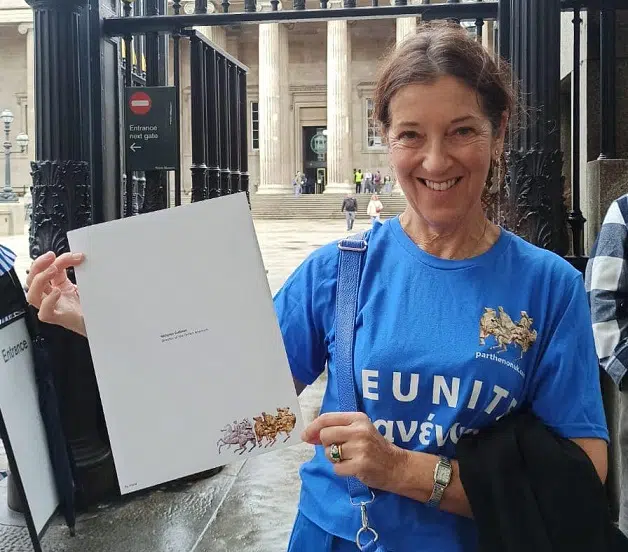

In recent days the British Committee for the Reunification of the Parthenon Sculptures, led by the acclaimed writer, Victoria Hislop, staged a protest at the British Museum with an open letter issued to the new Director of the British Museum calling for a meeting to discuss reunification.
Hopefully, with a change of government in Westminster, a more enlightened approach is adopted. But as momentum grows, it is also important to keep in mind that, unless Greece actually seeks a legal resolution, either by commencing proceedings in a court of competent jurisdiction to challenge the legality of the British Museum’s continued retention of the sculptures, or as part of an international push for an advisory opinion from the International Court of Justice, then any deal between the British Museum and the Greeks will inevitably require some level of compromise on both sides.
It remains to be seen if a deal can finally be done.
George Vardas is the Arts and Culture Editor and is also co Vice-President of the Australian Parthenon Association and co-founder of the Acropolis Research Group
Source: GCT
Διαβάστε όλες τις τελευταίες Ειδήσεις από την Ελλάδα και τον Κόσμο












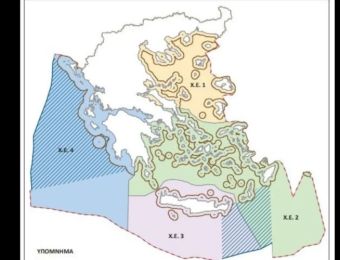








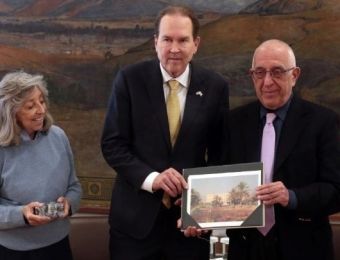
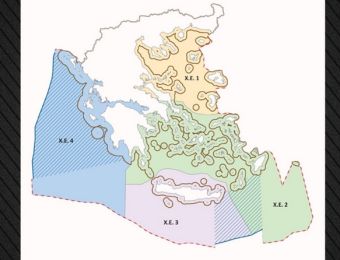
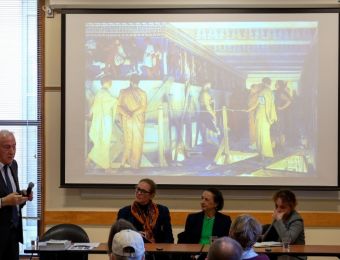






Το σχόλιο σας